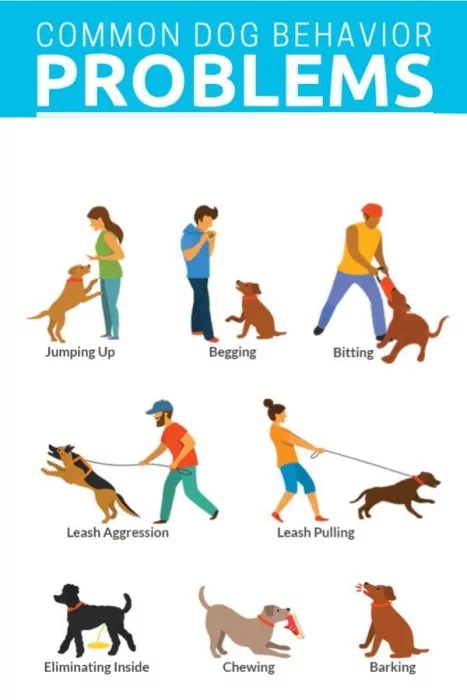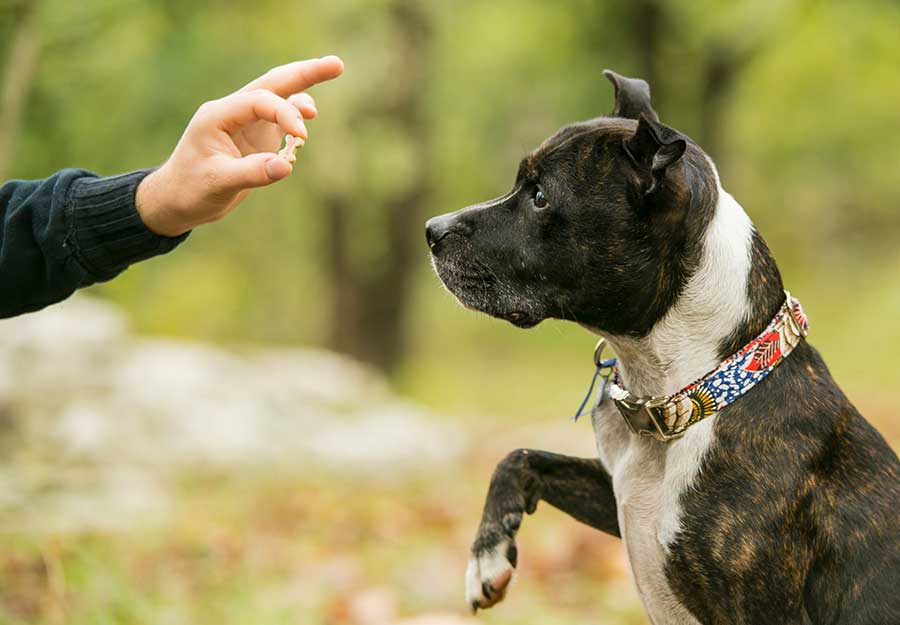Unlock Your Pet's Possible: Proven Canine Training Strategies for Success
Efficient pet training is a nuanced process that hinges on recognizing canine behavior and utilizing medically backed techniques. By integrating favorable reinforcement, establishing clear commands, and prioritizing socialization, pet owners can cultivate an efficient partnership with their pets.
Understanding Pet Dog Actions
Recognizing pet dog actions is important for reliable training and cultivating a positive relationship between pet dogs and their proprietors. A comprehensive understanding of canine body language, vocalizations, and social interactions is important for acknowledging their emotions and needs. Dogs communicate mainly with non-verbal hints; for instance, a wagging tail may suggest enjoyment, while pinned ears can indicate concern or submission.

In addition, ecological aspects play a significant duty fit a dog's habits. Changes in regular, new environments, or the presence of strange individuals can lead to anxiety or anxiety in pet dogs. Recognizing these triggers makes it possible for owners to alleviate adverse responses and develop ideal training techniques.
Inevitably, a deep understanding of canine habits lays the structure for successful training approaches, improving both habits and the overall bond between the pet and its owner. dog training near me. This knowledge is vital for fostering a well-adjusted, pleased canine friend
Positive Support Strategies
Efficient training counts heavily on positive support strategies, which have been shown to yield substantial lead to forming wanted actions in dogs. This approach involves awarding a pet for exhibiting specific habits, consequently raising the likelihood that these behaviors will be repeated. Benefits can take different kinds, consisting of deals with, appreciation, playthings, or play, relying on what motivates the individual dog.

It is vital to slowly terminate rewards as the pet learns the habits, transitioning to recurring reinforcement. This method keeps the behavior gradually while preventing reliance on consistent incentives. By concentrating on favorable support, trainers can grow a relying on relationship with their canines, advertising a cooperative and healthy training setting that boosts overall obedience and performance.
Establishing Constant Commands
A basic facet of successful canine training is the facility of constant commands. Uniformity in commands is crucial for efficient communication in between the dog and the trainer. When commands are uniform, canines discover to connect certain words with wanted actions, which increases the training procedure and enhances understanding.
To establish consistent commands, it is vital that all member of the family utilize the exact same terms and gestures. For instance, if someone utilizes "rest" while an additional states "rest down," it can produce confusion for the canine. Select clear, unique words for commands and guarantee everybody associated with the pet's training abides by these choices.
Reinforce commands with constant method, making sure that the canine receives enough chances to react properly. When a canine efficiently adheres to a command, prompt positive support ought go to this web-site to adhere to.
Finally, be client. Establishing consistent commands takes time and effort. With dedication and quality, you will assist your dog create a strong understanding of assumptions, inevitably bring about a well-behaved buddy.
Socialization and Exposure
Socializing a pet dog is important for cultivating a positive and well-adjusted friend. This process includes revealing your dog to a range of environments, people, and various other pets to develop their social skills and flexibility. Early socializing, ideally between the ages of 3 to fourteen weeks, is crucial, as it lays the groundwork for a canine's future actions.
Throughout socialization, objective to give favorable experiences in different settings, such as parks, hectic roads, and homes with various other pet dogs. Present your canine to different stimulations, consisting of audios, sights, and smells, guaranteeing that each encounter is satisfying. This direct exposure aids mitigate fear and stress and anxiety, leading the way for an extra resistant dog.
Engaging in controlled group play sessions with other dogs can also improve social abilities, educating your pet dog appropriate interactions and boundaries. Constantly check your pet's convenience degree throughout these experiences, progressively boosting direct exposure as their self-confidence expands. Keep in mind, the objective is to produce a well-shaped pet dog that prospers in varied circumstances, promoting a harmonious relationship with both humans and other pets. Focusing on socialization will considerably add to your dog's total joy and habits throughout their life.
Overcoming Common Educating Difficulties

Pet dogs may have a hard time to focus in busy or unfamiliar setups. Progressively desensitize your pet to disturbances by beginning training in a silent atmosphere and slowly introducing even more stimulations as they end up being skilled.
Furthermore, behavioral issues like leaping or extreme barking can end up being aggravating. Address these by instructing alternative actions, such as resting smoothly when greeting visitors. Consistency and patience are crucial; enhance preferred behaviors consistently and stay clear of abuse, which can result in confusion.
Lastly, recognize that each canine is one-of-a-kind, and training timelines may differ. Dressmaker your strategy to your canine's private requirements, and look for professional advice if needed. With perseverance and the appropriate methods, conquering these obstacles can cause a well-trained, delighted canine companion.
Verdict
To conclude, unlocking a pet's prospective demands an extensive approach that integrates an understanding of canine actions, the application of positive support techniques, and the facility of regular commands. Early socialization and direct exposure to diverse atmospheres better improve a pet's adaptability and self-confidence. By resolving typical training obstacles with customized techniques and perseverance, a participating and unified relationship between canine and trainer can be fostered, ultimately leading to a mannerly friend with the ability of flourishing in numerous scenarios.
Effective canine training is a nuanced procedure that pivots on recognizing canine behavior and utilizing medically backed strategies.Comprehending pet actions is important for efficient training and promoting a favorable partnership in between pets and their owners.Effective training relies heavily on favorable support strategies, which have actually been revealed to generate substantial outcomes in forming wanted actions in pets. When commands are consistent, pets find out to link details words with wanted actions, which increases the training procedure and boosts understanding.
In final thought, opening a pet dog's prospective requires an extensive method that incorporates an understanding of canine behavior, the application resource of favorable support methods, and the facility of consistent commands.